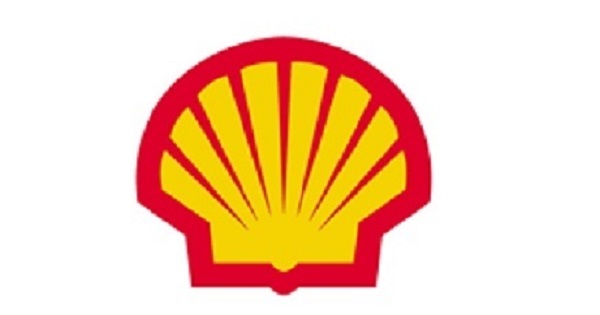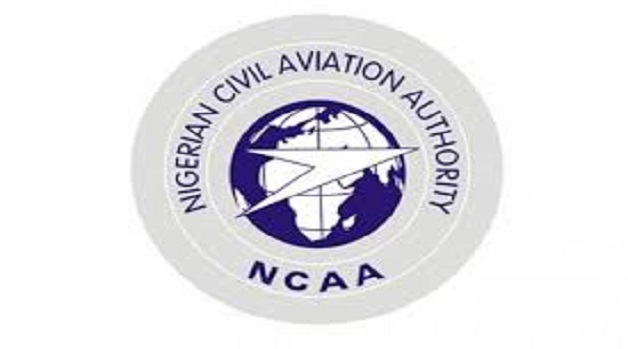News
Shell Employees Launch N82m Free Feeding Programme at Isolation Centres

Employees of Shell companies in Nigeria have launched free feeding programme in COVID-19 isolation centres in seven states under the Shell Employee Care Programme, Igo Weli, general manager External Relations of Shell Nigeria, said in a statement issued on Sunday.

“The programme has kicked off in Abia, Bayelsa, Delta, Imo, Lagos, Ogun and Rivers and it is a further demonstration of care to the people following the numerous intervention programmes by Shell companies in Nigeria particularly in support of government at all levels in the fight against the spread of the novel coronavirus pandemic,” Weli said.
The feeding programme, according to Weli, was being funded from personal donations by staff and contractors of the Anglo-Dutch integrated energy giant, the total amount of which was matched by the companies to make up the N82.6million for the programme.
The programme delivery strategy involves a collaboration with the state governments, non-government organisations and certified caterers to provide freshly cooked meals daily to patients and healthcare workers at the isolation centres.
Dr James Omietimi, head of Clinical Services at the Bayelsa State Isolation Centre in Yenagoa, who oversees the distribution of the meals said, “I eat the lunch provided and the nutritional value is good because of the variety. I can tell you it’s tasty and meals have been coming in daily.”
So far, this intervention has provided over 31,000 meals to the isolation centres with plans to scale up to 54,000.
Shell companies in Nigeria had earlier donated ambulances, testing machines and kits, medical consumables and personal protection equipment to Abia, Bayelsa, Delta, Imo, Lagos, Ogun, Oyo and Rivers states to help in the fight against the spread of the COVID-19 pandemic.
In 2012 and 2018, staff and contractors of Shell companies in Nigeria had also made personal cash donation to provide succor to victims impacted by the unprecedented flood and Internally Displaced Persons humanitarian crises in the Niger Delta, Kogi and Anambra States, and North East of Nigeria, as part of the Shell Employees Care scheme.
Shell companies in Nigeria comprise The Shell Petroleum Development Company of Nigeria Limited (SPDC); Shell Nigeria Exploration and Production Company Limited (SNEPCo); and Shell Nigeria Gas.
News
AFC Appoints Ireti Samuel-Ogbu as Chair of Board of Directors

Africa Finance Corporation (AFC), the continent’s leading instrumental infrastructure solutions provider, has announced the appointment of Mrs Ireti Samuel-Ogbu as Chair of its Board of Directors. She succeeds Mr. Emeka Emuwa who has completed 12 years of meritorious service to the Corporation.

Mrs. Samuel-Ogbu brings a wealth of experience spread over three decades leading and transforming the banking sector in Europe, Middle East, and Africa. Until recently, she led Citi’s institutional businesses in Nigeria and Ghana, with oversight across Banking, Markets and Services.
During this period, she steered the franchise through significant macroeconomic and regulatory headwinds, strengthening its strategic momentum and resilience.
Her international career within Citibank included senior leadership roles across over 50 countries in the Europe, Middle East, and Africa region, during which time she worked in the United Kingdom, Nigeria, and South Africa.
Mrs. Samuel-Ogbu has extensive boardroom experience including Citibank Nigeria where she was a Non-Executive Director for 6 years and Chair of the Risk Committee prior to becoming the Managing Director.
She also served on the board of CHAPS Clearing UK, the high value payment system now operated by the Bank of England and a UK-based charity, Opportunity International.
Her extensive experience and unwavering dedication to the advancement of Africa make her a valuable asset to AFC at a time when the Corporation is more committed than ever to accelerating Africa’s transformation through bold investments, innovative financing models and catalytic partnerships.
AFC recently delivered a record-breaking FY2024 financial performance, with total revenue increasing by 22.8% to US$1.1 billion, surpassing the US$1billion milestone for the first time.
This strong performance was driven by several transformational projects including acting as the Lead Project Developer for the Lobito Corridor, a transformative multi-country transport network connecting Angola, Zambia and the Democratic Republic of Congo (DRC), financing of the expansion of the Kamoa-Kakula Copper Complex in the DRC — one of the world’s highest-grade, low-carbon underground copper mines and financing support for the commissioning of the Dangote Refinery, the largest in Africa.
Speaking on the appointment, Samaila Zubairu, President& CEO of AFC, said: ” We are delighted to welcome Mrs Ireti Samuel-Ogbu as Chair of the Board.
Her wealth of experience, visionary leadership and deep understanding of Africa’s financial landscape will be invaluable as we navigate our next phase of growth- expanding our impact, mobilising urgently needed capital and delivering transformative projects that enable inclusive and sustainable prosperity across the continent.”
Mrs Ireti Samuel-Ogbu commented: “I am honoured to take on the role of Chair at AFC, an institution that serves as a trusted bridge between international capital and Africa’s dynamic growth opportunities.
I look forward to working closely with the board, management, and all stakeholders to advance the Corporation’s mission and strengthen its role as the leading provider of strategic, investment-driven solutions that unlock Africa’s full economic potential.”
News
NCAA Tightens Regulations: Unlicensed Airports to Face Penalties in 2026

Nigeria Civil Aviation Authority (NCAA) has announced that local airports operating without valid permits will face sanctions beginning January 1, 2026.

Godwin Balang, director of aerodrome and airspace standards at the NCAA, made the announcement on Monday during the Airstrip Owners and Operators Stakeholders Engagement Programme held in Lagos.
“This is not a threat but a collective regulatory commitment,” Balang said. “Evolving aviation dynamics require us to update our regulatory strategies to achieve more impactful results.”
Balang revealed that out of the 92 airstrips in the NCAA database — which includes operational, non-operational, and those under construction or rehabilitation — only a few currently hold valid operational permits.
He noted that 68 of the airstrips are federal facilities managed by the Ministry of Aviation and Aerospace Development, while 24 are owned by private individuals or organisations.
“This division highlights the necessity for stronger collaboration between the NCAA and the ministry to clearly define regulatory and operational roles,” he added.
Citing section 71(3)&(4)(a) of the Civil Aviation Act 2022, Balang stressed the NCAA’s legal mandate to certify aerodrome operations and set minimum safety standards.
“We must address emerging threats while maximizing the use of airstrips to bolster Nigeria’s socio-economic development,” he said.
Chris Najomo, director-general of the NCAA, said the stakeholder engagement was organised to enhance communication and ensure compliance with the law.
“Our goal is to clarify construction, operational, and safety requirements, identify challenges, explore development partnerships, and promote adherence to global best practices,” Najomo stated.
He disclosed that the NCAA is developing new, customized regulations for airstrips. “While ICAO Annex 14 standards are international benchmarks, they are sometimes too stringent for smaller airstrips.
“Our tailored regulatory framework will support general aviation growth without compromising safety,” Najomo said.
He emphasized that the initiative aligns with the NCAA’s ease-of-doing-business principles and supports the minister’s five-point agenda to advance the sector.
News
US Identifies Corruption as Key Barrier to Trade and Investment in Nigeria

United States government has identified corruption as the primary obstacle to trade and investment in Nigeria, as outlined in the 2025 National Trade Estimate Report on Foreign Trade Barriers.

The report, issued by the Office of the United States Trade Representative, highlights corruption, lack of transparency in tender processes, and delays in approving import permits as significant challenges faced by U.S. companies operating in Nigeria.
U.S. firms reportedly encounter inappropriate demands for “facilitative” payments, while efforts to combat corruption are hindered by inter-ministerial conflicts and partisan politics.
The report also raises concerns about the Nigerian justice system’s ability to effectively handle corruption-related cases.
Another major issue is Nigeria’s slow approval of import permits for American agricultural products, which has been a longstanding trade barrier.
Since 2019, the U.S. has sought to negotiate permits for various food and agricultural exports, but progress has been limited.
Additionally, inconsistencies in Nigeria’s implementation of technical regulations and sanitary measures create confusion and hinder compliance.
The report criticizes Nigeria’s high combined duties and fees on numerous tariff lines, exceeding ECOWAS limits on some items.
These systemic issues, combined with challenges in customs administration, contribute to the difficulties of doing business in Nigeria.

 Telecom1 day ago
Telecom1 day agoMeta Challenges Nigerian Tribunal’s $220M Fine over Data Breaches

 Broadcasting1 day ago
Broadcasting1 day agoAI and Cybersecurity: Balancing Innovation with Caution

 E-Business1 day ago
E-Business1 day agoFG Warns Nigerians Against Growing Threat of Cyber Slavery in West Africa

 E-Financial1 day ago
E-Financial1 day agoSupreme Court Sets Aside N22 Trillion Judgement against Union Bank

 News1 day ago
News1 day agoEFCC Bans Cash above $10,000 from Leaving Nigeria without Declaration

 E-Financial1 day ago
E-Financial1 day agoUBA Envisions Footprint in over 100 Countries

 General News1 day ago
General News1 day agoAfe Babalola University Partners with New Horizons to Integrate 4IR Skills into Academic Curriculum

 E-Business1 day ago
E-Business1 day agoNCC Vows to Tackle Online Infringement, Block Illegal Music Websites


























